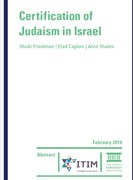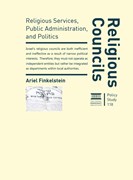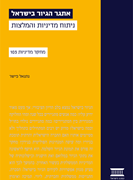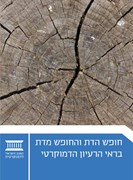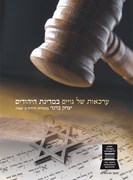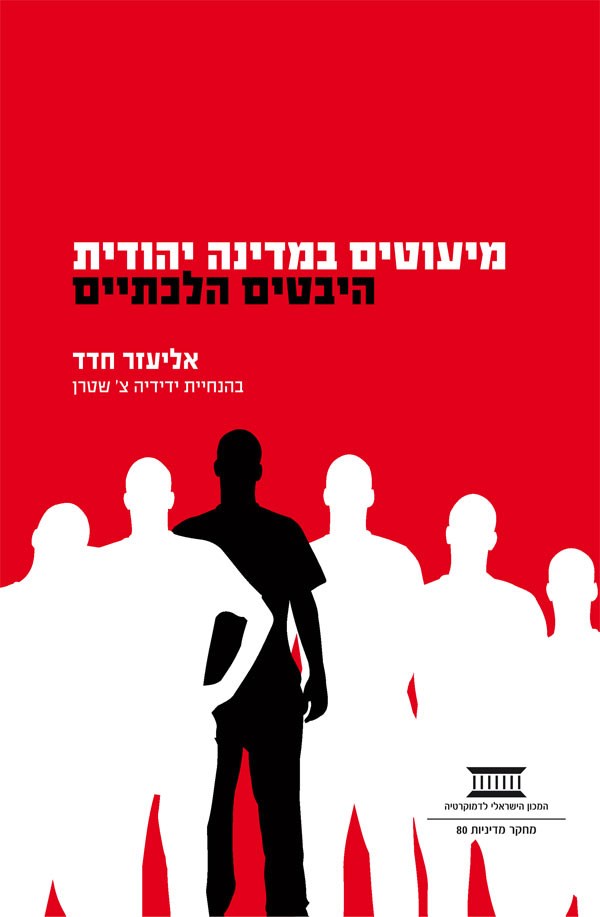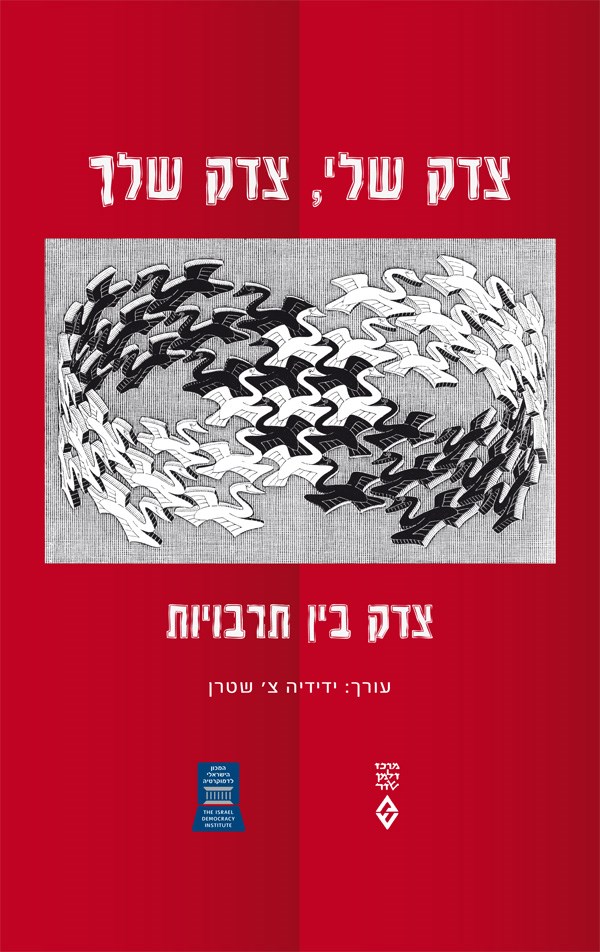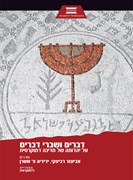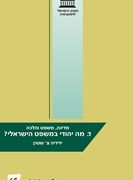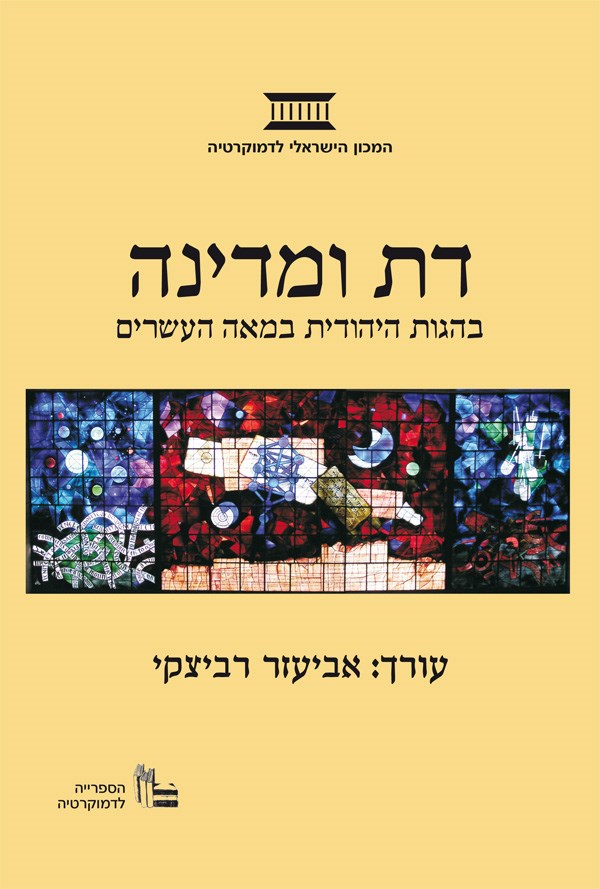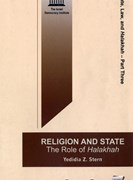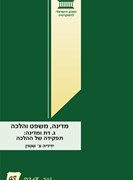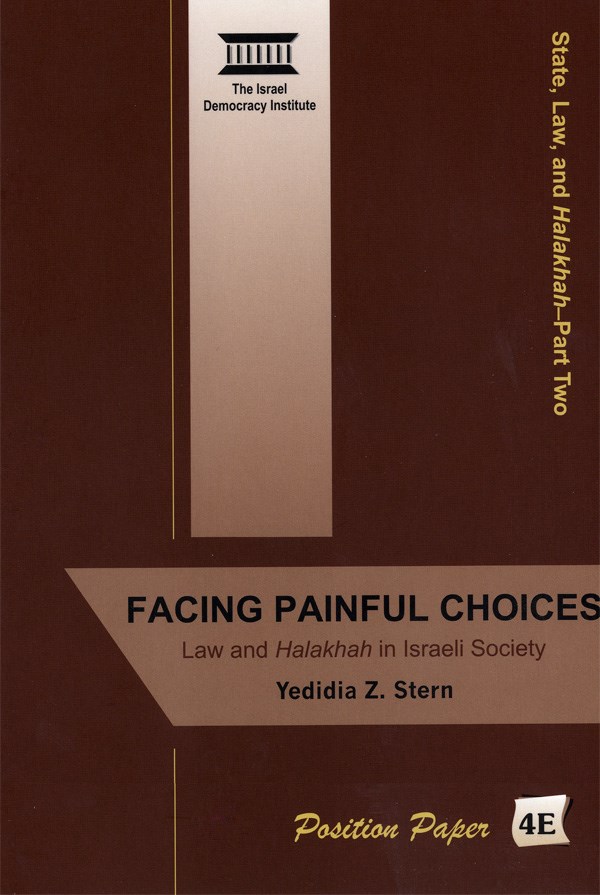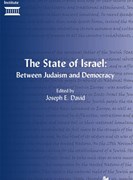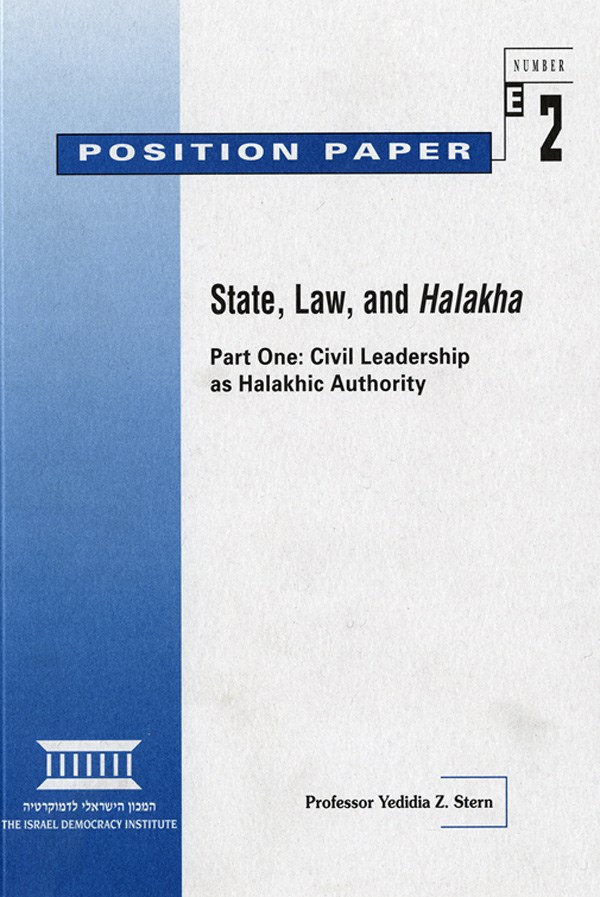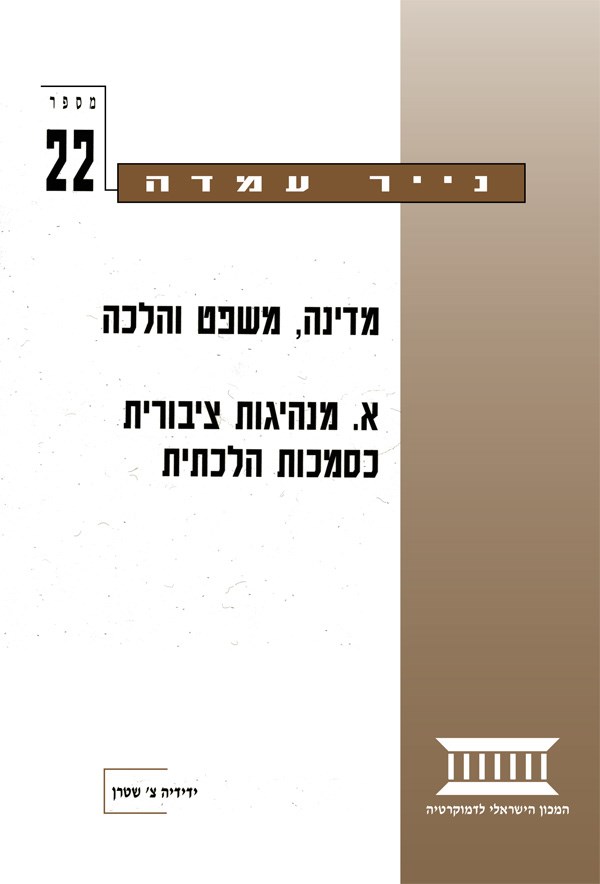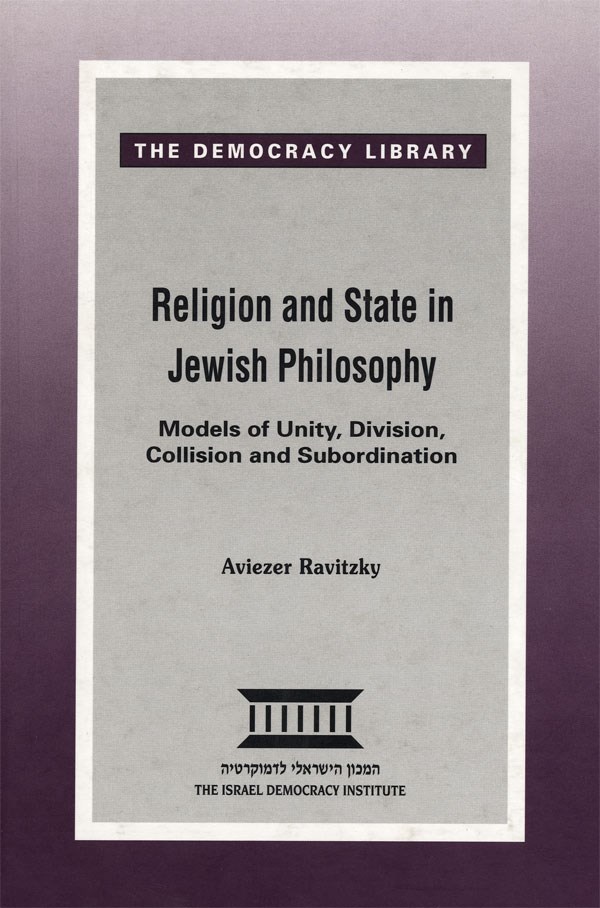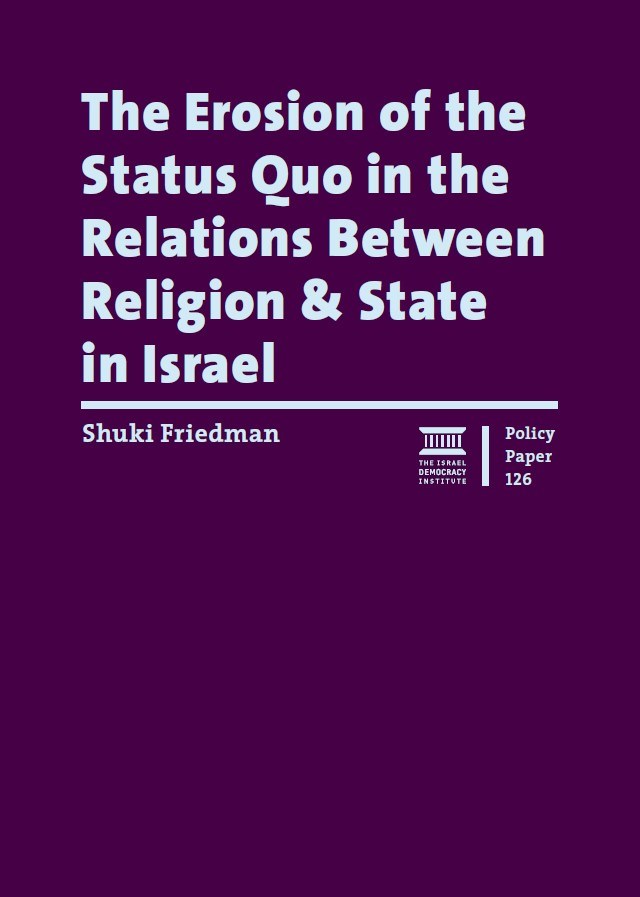

Publications Regarding secular and religious Law
Articles

The Proposed "Softened Rabbis Bill" Complicates the Budgeting Process for Religious Councils
Written By: Dr. Ariel Finkelstein
The recently proposed bill runs counter to accepted budgeting principles and undermines the autonomy of local governance.

Haredi Yeshiva Students Are Being Called to IDF Enlistment Centers. What’s Next?
Written By: Adv. Shlomit Ravitsky Tur-Paz, Dr. Eran Shamir-Borer, Adv. Mirit Lavi
On Monday August 5, 2024 and Tuesday August 6, 2024—900 ultra-Orthodox yeshiva students were required to present themselves at IDF enlistment centers. Shlomit Ravitsky Tur-Paz, Dr. Eran Shamir-Borer and Mirit Lavi explain the next steps the IDF will need to take in order to enforce the legal obligation of conscription.

Duplicate Kashrut Certifications and Excess Costs to Suppliers and Consumers
Written By: Dr. Ariel Finkelstein, Gabriel Abensour
88% of the products sold in supermarkets in Israel have duplicate kashrut certifications resulting in excess costs to both suppliers and consumers. Analysis by IDI experts Finkelstein and Abensour reveals why reform is overdue

Towards a New Covenant on Religion and State in Israel: Conference
At IDI's conference Former Defense Minister MK Avigdor Liberman said he will not advance the recruitment plan he had drafted with the Ministry of Defense. "Every 18-year-old will be required to enlist."

Towards a New Covenant on Religion and State in Israel
Written By: Dr. Shuki Friedman
After years of struggles over issues related to religion and state, we hereby agree to adopt a new approach, which will create a covenant to provide a new system of arrangements and agreements to strengthen the link between the Israeli public and the Jewish identity of the State of Israel.

The Decade in Review: Religion and State
Written By: Dr. Shuki Friedman
Israel's once sacrosanct status quo seems less relevant than ever, with the essence of what it means to be a Jewish state in flux and at stake.
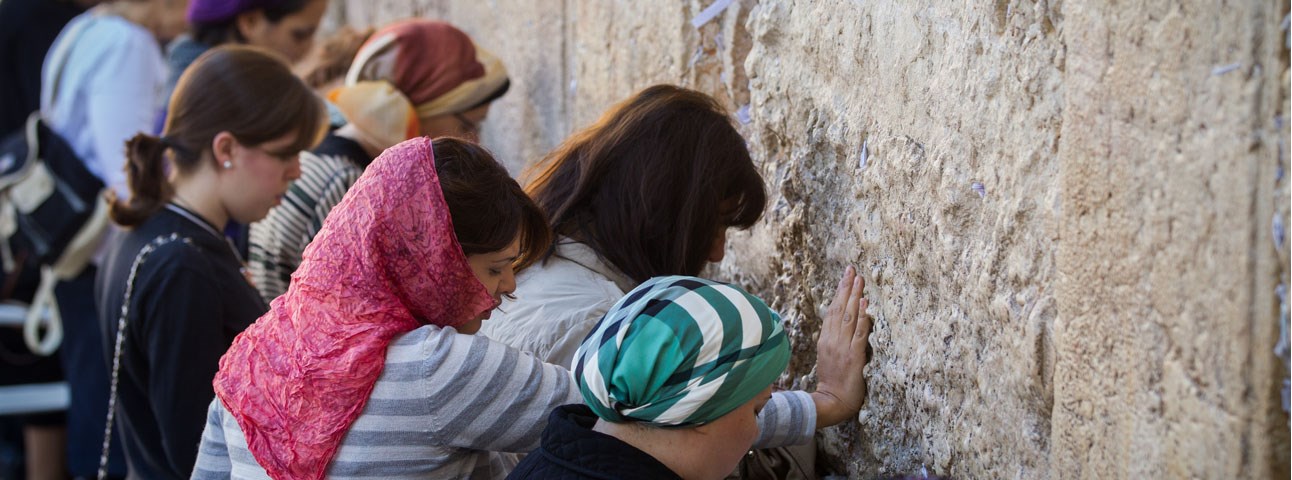
Facing Their Destiny
Written By: Yair Sheleg
All of us face the dread of the unknown future and the fate it holds for us.

Religion and State: Israelis Seek Change in Existing Arrangements
Even though most Israelis support opening businesses & public transportation on Shabbat issues of religion and state will not decide the September elections

Solidarity is a Must for the Survival of the Jewish people
Written By: Dr. Shuki Friedman
Jewish solidarity is an existential imperative. As we mark the solemn day of Tisha B'Av, Dr. Friedman reflects on the importance of strengthening the common denominator among all Jewish communities.
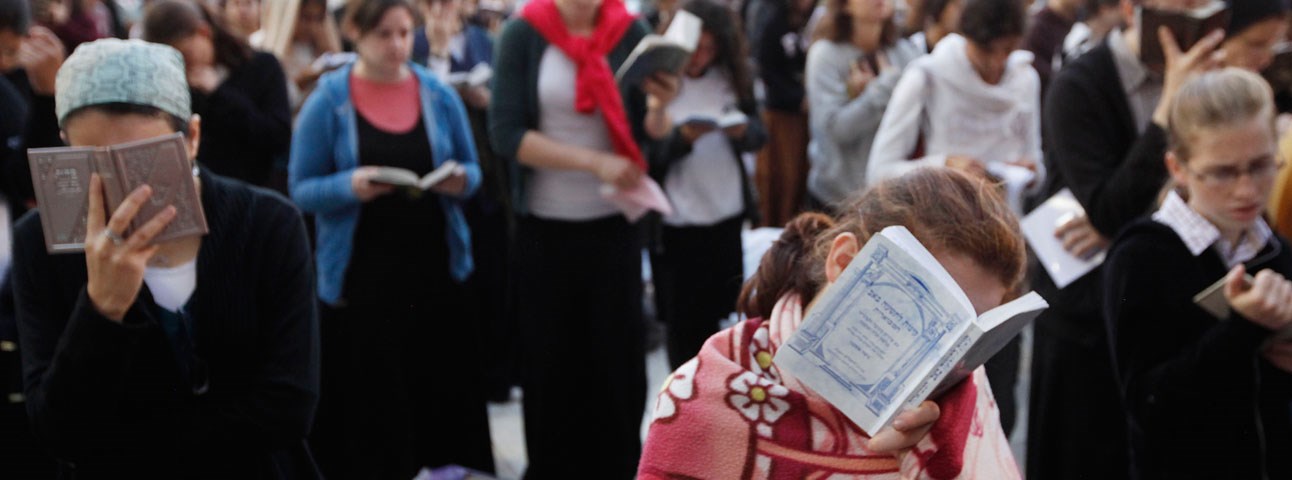
Tisha B'Av: What's Worth Mourning For?
Written By: Yair Sheleg
Strengthening the norms that are founded on our shared national traditions can help fortify our shared national identity - but any attempt to impose religious norms on a public when the majority does not identify with them will only lead to division and hate, says Yair Sheleg as we mark the mourning day of Tisha BÁv.

Is Israel like Iran? Hardly
Written By: Dr. Shuki Friedman
An unflattering US report on freedom of religion would have us believe that Israel is being run by an ayatollah-like regime. While some limits to freedom of religion exist, Israel is a free country

DNA Tests for Jewishness
Written By: Dr. Shuki Friedman
In today’s world of big data, it is easy to imagine what the impact would be of a single database containing information about their Jewishness—of Israelis and Jews around the world.
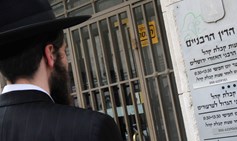
When the Government Provides Religious Services
Written By: Dr. Shuki Friedman
Full separation of religion and state isn't possible, but why is the Chief Rabbinate in the kashrut business?
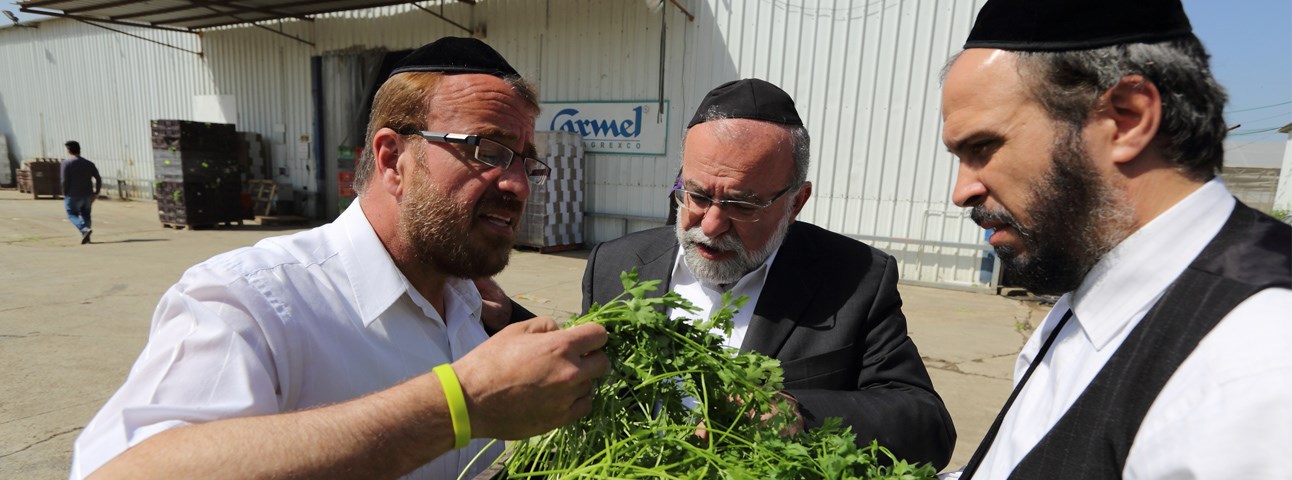
Kashrut Supervision Services Bill
IDI is calling to amend the Kashrut Supervision Bill, so that instead of creating an additional layer of intermediaries, the market will be open, transparent and regulated by Rabbinate authorized rabbis.
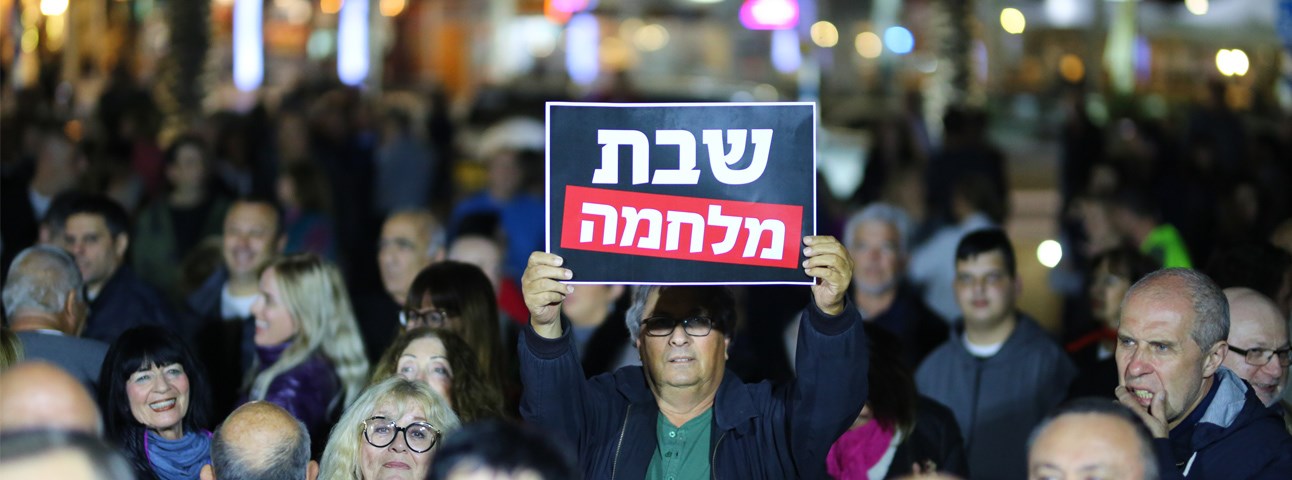
Faith and the City
Written By: Dr. Shuki Friedman
In an op-ed for the Jerusalem Post, Dr. Shuki Friedman, Head of IDI's Center for Religion, Nation and State, explains how local government plays a critical role in balancing religion and state in day-to-day life in Israel.

Shabbat in the City
Written By: Dr. Shuki Friedman, Adv. Gilad Wiener
A recent law stripped local authorities of the power to decide on allowing commercial activity on Shabbat and handed it over to the Minister of the Interior, a development which was met with public uproar. Would it not be better to leave these powers in the hands of the municipalities, which act according to the profile of their resident population? Dr. Shuki Friedman makes the case for leaving these decisions in the hands of the local authority.
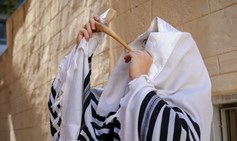
On This Day the World Stands on Trial
Written By: Yair Sheleg
Do we really believe that our fate for the coming year is determined on this day?

The Decision to Halt Work on the Sabbath on the Ayalon Bridge – a Farce
Written By: Dr. Shuki Friedman
- “The decision is questionable. If the government is really interested in avoiding desecration of the Sabbath, and in ensuring a day of rest, it should focus its energy on stopping the illegal work currently being performed on the Sabbath, which according to reports by the Ministry of Industry, Trade and Labor, is rarely done.

Israel's wealthiest are abandoning IDF combat units
Written By: Dr. Asaf Malchi
Israel's secular elite has lost its enthusiasm for combat service and now targets intelligence units, such as Unit 8200.

Israel Is Repeating The Mistakes That Led To The Temple’s Destruction
Written By: Prof. Yedidia Z. Stern
What message of Tisha B’Av is relevant for life in a sovereign state like Israel? Does the American recognition of Jerusalem as the capital of Israel make the day of mourning for “the city that is in mourning, laid waste, despised and desolate” an anachronism?
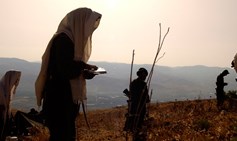
A Kosher Military
Written By: Yohanan Plesner
Yohanan Plesner discusses with Tipping Point the "People's Army". Can a compromise be reached and is "sharing the burden" of military service a realistic goal?
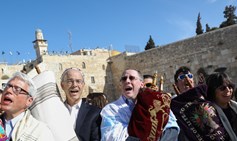
Calling on Our Leaders to Lead
Written By: Prof. Yedidia Z. Stern, Dr. Shuki Friedman
Leading public figures avoid dealing with issues that are of national importance when it entails confronting the ultra-Orthodox community.

The Conscription Plan: Taking the Easy Route to Inequality
Written By: Dr. Gilad Malach
Though many ultra-Orthodox politicians expressed outrage at the original publishing of this new bill, some view the proposal as a double achievement.

Jews Worldwide Must Resist The Power Grab Of Israel’s Chief Rabbinate
Written By: Dr. Shuki Friedman
Step by step, the Chief Rabbinate is turning itself into the central source of halakhic legitimacy not just within Israel’s borders but beyond them, and becoming a global force through securing its power all over the Jewish world.
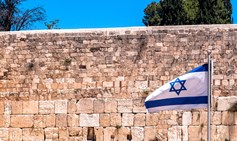
Israelis Are More Traditional Than You Think
Written By: Dr. Shuki Friedman
More than 25 years ago, the “Basic Law: Human Dignity and Liberty” affirmed that Israel is a “Jewish” and “democratic” state but did not define either of these terms in the Israeli context. Now is the time for us to turn to the Jewish identity that has been adopted by a large portion of Israel’s Jews and allow it to shape the country’s Jewish character.
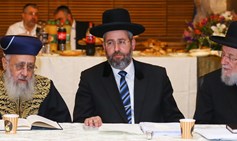
It is up to chief rabbis to preserve us as one people
Written By: Prof. Yedidia Z. Stern
On the practical side, religious conversion hasn’t ‘delivered the goods’ so far. Although it has been officially declared a national mission, less than 10 percent of non-Jewish immigrants and their offspring have completed the process. As a result, one in 20 non-Arab Israelis isn’t recognized as a Jew, despite having made aliyah under the Law of Return.

Proposed Conversion Law
Written By: Prof. Yedidia Z. Stern
Prof. Yedidia Stern, Vice President of the Israel Democracy Institution said that the proposed conversion law is an important step. The state must take responsibility and resolve the issues that affect so many lives

Preserving the Rabbinate’s monopoly over the kashrut market: the consumer will be the one to pay
The Israel Democracy Institute on the Ministry of Finance and Rabbinate's decision to preserve the Rabbinate’s monopoly over the kashrut market in Israel: the consumer will be the one to pay
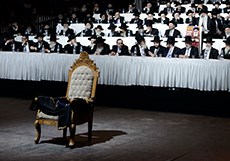
The End of the "Great Rabbis" (Gdolim) Era
Featuring two book launches: “Haredim A Guide to their Beliefs and Sectors” and “A Flock with No Shepherd: Shas Leadership the Day after Rabbi Ovadia Yosef”

How Many Israelis Keep Kosher for Passover?
Written By: Prof. Tamar Hermann, Prof. Ephraim Yaar
A special update from the Peace Index by Tel Aviv University and the Israel Democracy Institute shows that that two-thirds of the Jews in Israel eat kosher for Passover outside the home and prepare the their house for the holiday - but 58% oppose the ban on cafes and restaurants from serving chametz (bread).
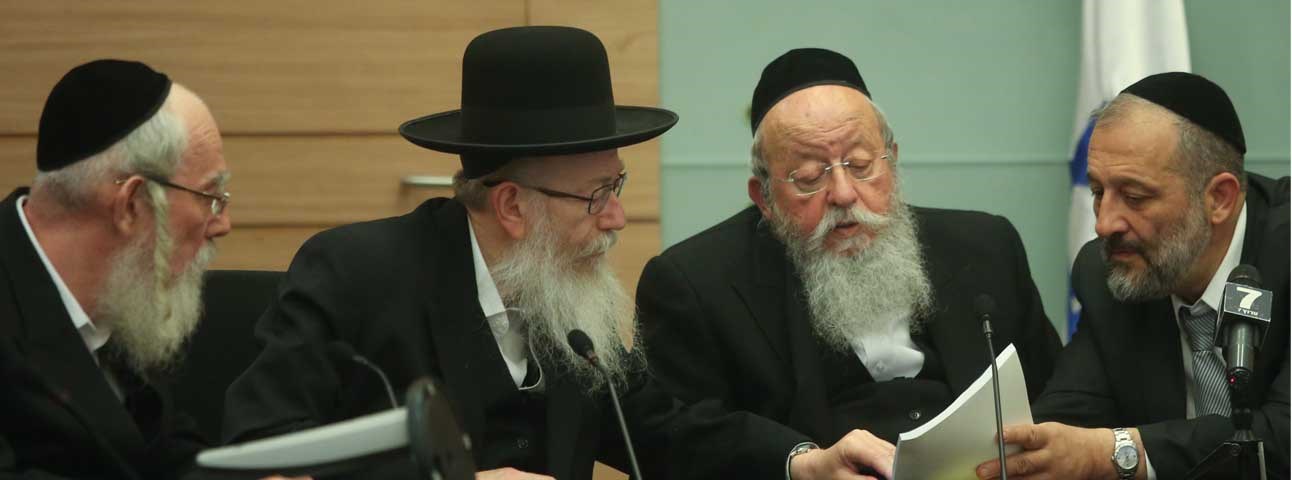
How Much Should Jewish Law Control the Jewish State?
Written By: Dr. Shuki Friedman
For decades, religious and ultra-Orthodox members of Knesset, backed and encouraged by their rabbis, have worked to inject the secular state with as much Judaism as possible. Over the course of 70 years, the results of this ongoing effort have been minimal, but the price paid by Judaism has been great.

To those Who are Making Decisions about the Future of the Jewish State:
Written By: Yohanan Plesner
In an op-ed first published by The Forward, IDI's president calls on Israeli leaders to empower Diaspora Jews in the crucial debate on identity and faith.

New IDI Study Calls for Breaking Up the Religious Councils
Study results: Grave failures in the functioning of the councils and in the religious services they provide

A Threat to the Foundations of Jewish Peoplehood
Written By: Prof. Yedidia Z. Stern
Leaving issues of religion and state to an ultra-Orthodox monopoly is leading to estrangement between Israel and the Diaspora. New arrangements must be reached.

Hijab, Kippah, Crucifix
Written By: Prof. Yedidia Z. Stern
The ruling by the European Court of Justice (ECJ) that a company is permitted to terminate its worker for wearing religious dress is a sad demonstration of the words of Ecclesiastes: “And moreover I saw under the sun the place of judgment, that wickedness was there; and the place of righteousness, that iniquity was there.”
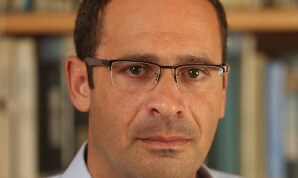
How To Prevent A Religious Civil War From Consuming Western Europe
Written By: Dr. Shuki Friedman
While Europeans are trying to maintain their sense of ownership over the public sphere, restrictions on religious expression in the public domain strike at Muslims’ most basic of rights: to continue living their lives as guided by the dictates of their own conscience. Will there be a religious-based civil war? This article was first published by the Independent Journal Review.
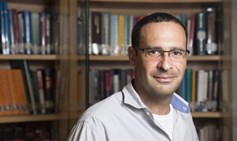
Rosh Hashanah Resolution
Written By: Dr. Shuki Friedman
The upcoming High Holidays are an opportunity to expand our perception beyond our selves and communities. This article was first published by the New York Jewish Week.

IDI Statement on the "Mikveh Bill" (1)
Written By: Dr. Shuki Friedman
Dr. Shuki Friedman, head of the IDI Center for Nation, Religion and State, said the bill's declared purpose is to attack the decision by the Supreme Court. Moreover, this bill would give the Chief Rabbinate unbridled authority over the mikvehs.

Should Jews Pray on the Temple Mount Today?
Written By: Prof. Yedidia Z. Stern
Professor Yedidia Stern argues that the question of how we should relate to the Temple Mount is more complex than any other issue on the public agenda in Israel. This question must be discussed in three parallel dimensions—religious, national, and liberal. This poses a serious challenge, which must be approached with the utmost sensitivity.

The IDF’s Fighting Ethos in the Wake of Operation Protective Edge
Written By: Yohanan Plesner
IDI President Yohanan Plesner stresses the need to ensure that the Israel Defense Forces remains at the heart of the Zionist consensus so as to enable it to continue to be the army of all citizens of Israel.

Shmita: Rest, Share, Release
Written By: Prof. Yedidia Z. Stern
An exploration of the existential, social, and economic dimensions of the Shmita year, that calls for bringing together social, moral, cultural, religious and national forces to implement the idea of Shmita in non-agricultural and national contexts in Israel.

The IDF: Army of the People or Army of God?
Written By: Prof. Mordechai Kremnitzer
IDI Vice President Prof. Mordechai Kremnitzer addresses the question of the appropriateness of the letter that Givati Brigade commander Col.Ofer Winter sent to his subordinate officers as Israel prepared for the ground incursion in Gaza in the summer of 2014.

On Intermarriage, Judaism, and Democracy in Israel
Written By: Benjamin (Benny) Lau
Rabbi Dr. Benjamin Lau shares thoughts on the tension between Judaism and democracy, in response to the public protests against the marriage of a Jewish woman who converted to Islam and an Israeli Arab.

International Disabilities Day 2013: Human Rights and Judaism in Action
Written By: Benjamin (Benny) Lau
In honor of International Day for Persons with Disabilities, Rabbi Dr. Benjamin (Benny) Lau updates us on IDI's efforts on behalf of people with disabilities and reveals that people with guide dogs are now allowed to access the Western Wall.
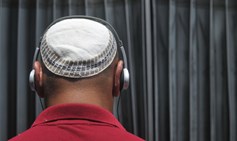
No to the Separation of Religion and State in Israel
Written By: Yair Sheleg
Should the American model of separation of church and state be applied to Israel? In an article in <em>The Jewish Week</em>, IDI's Yair Sheleg argues that Israel needs a unique model.

The High Holidays: A Personal and National Time
Written By: Prof. Yedidia Z. Stern
Prof. Yedidia Z. Stern shares thoughts on the Hebrew calendar, which contributes to Jewish unity and preserves the Jewish people as a single national and cultural unit.

Mass Transport on Shabbat and the Conflict between Religion and State
Written By: Prof. Yedidia Z. Stern
IDI Vice President of Research Prof. Yedidia Stern sets the controversy over mass transportation on Shabbat and holidays in Israel in a broader context, and distinguished between the need for an Israeli-Jewish Shabbat (Sabbath) rather than a religious Shabbat.

Choosing between the Law and Torah
Written By: Jonah Mandel
Is the tension over the arrests of Rabbis Dov Lior and Ya’acov Yosef a precursor to an inevitable collision between Halakha and the judiciary? IDI Vice President of Research Prof. Yedidia Stern shared his views on this question with Jonah Mandel of The Jerusalem Post.
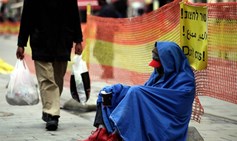
Robinson Crusoe, Just Distribution, and the Image of God
Written By: Prof. Shahar Lifshitz
On January 5-6, 2011, IDI convened a Conference on People with Disabilities in the Jewish and Democratic State, as part of the activities of IDI's Judaism and Human Rights project. IDI Senior Fellow Prof. Shahar Lifshitz, the project's co-director, shares his thoughts on social justice and the just distribution of resources.

The "Rabbis' Letter" and Halakhah
Written By: Dr. Eliezer Hadad
The "Rabbis' Letter" signed by dozens of community rabbis in Israel in December 2010 asserts that Jewish law forbids the rental and sale of homes in Israel to non-Jews. Is renting property to non-Jews indeed forbidden by Jewish law? IDI Researcher Dr. Eliezer Hadad surveys opinions by contemporary rabbis who adopted a universalistic approach and found a halakhic basis for the equal rights mandated by both international norms and the Israeli Declaration of Independence.

Religion and State: Is Israel Different than any Other Country on this Matter?
Written By: Yair Sheleg
Yair Sheleg investigates whether the separation of religion and state manifests itself differently in Israel than it does in other countries.
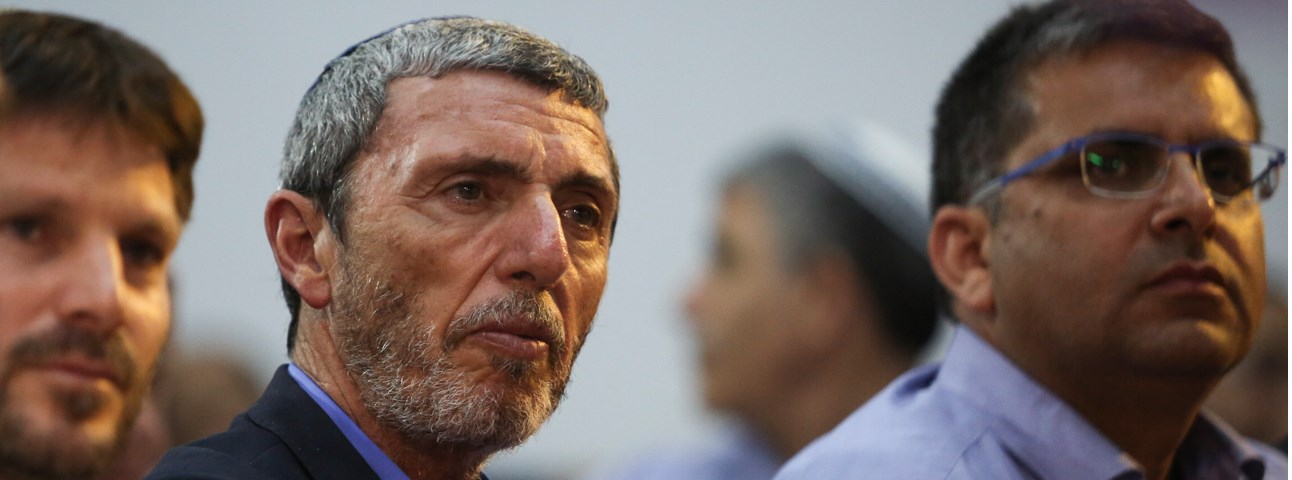
The Burden of Proof
Written By: Yair Sheleg
Calls for applying "Torah Law"in Israel lay bare the the much larger problem posed by the substantial clash of the world of Halacha with two fundamental principles of the modern liberal world: individual freedom and equal rights
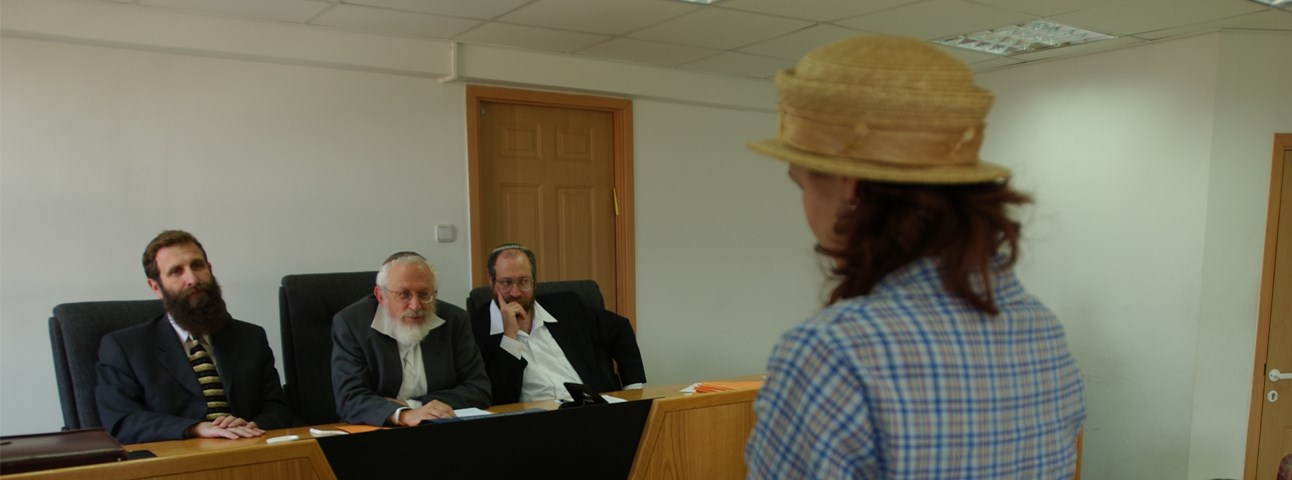
Conversion: Joining a Religion or Joining a Nation?
Written By: Prof. Yedidia Z. Stern
The rigid halakhic position might make conversion irrelevant as the integration of “non-Jewish Jews” into Israeli society will soon legitimize the sociological path to becoming a Jew, outside the bounds of religion, and make conversion superfluous.

The “People’s Army”?
Written By: Dr. Asaf Malchi
This article presents the main milestones in the recurring attempts to put a satisfactory arrangement for the deferment of military service for yeshiva students in place. In doing so, it surfaces the changes that have occurred over time in the constitutional, legal, and public responses and attitudes on this issue.

Two Jewish Nations and the Abyss Between Them
Written By: Dr. Shuki Friedman
For many American Jews, identification with the State of Israel is a significant component of their Jewish identity.

Religion Can Be the Bridge Linking Jews and Muslims
Written By: Dr. Shuki Friedman
How both faiths can use their common threads and customs as a means to connect, dialogue and cooperate.

Ultra-Orthodox in the IDF: A Ticking Time Bomb
Written By: Prof. Yedidia Z. Stern
To encourage enlistment, Israel should adopt a conscription model that is cognizant of the ultra-Orthodox fear of erosion of their identity and employs both positive and negative economic incentives.

The Nation State law
Written By: Yohanan Plesner , Prof. Mordechai Kremnitzer, Prof. Yedidia Z. Stern
If Israel was founded as the state of the Jewish people, why is a nation-state law so problematic, having already toppled one government?

Is the Chief Rabbinate's Monopoly on Kashrut Over?
Written By: Dr. Shuki Friedman
The implications of the Supreme Court's ruling go far beyond the Kashrut market.
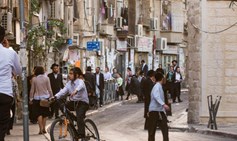
Where Will the Ultra-Orthodox Community Live in 2040?
Written By: Dr. Lee Cahaner
The State of Israel needs to come up with appropriate living solutions for the ultra-Orthodox, whose numbers are expected to increase significantly.

New IDI Survey: 46% of Religious Israelis Support a Change to the Religious Status Quo
A special IDI survey shows that 70% of secular Israelis believe that in recent years life in the public sphere has tended to favor the ultra-Orthodox and religious; over one-third of religious Israelis and 80% of people who define themselves as not religious but traditional either support the separation of religion from state or reducing religious influence on life in Israel.


